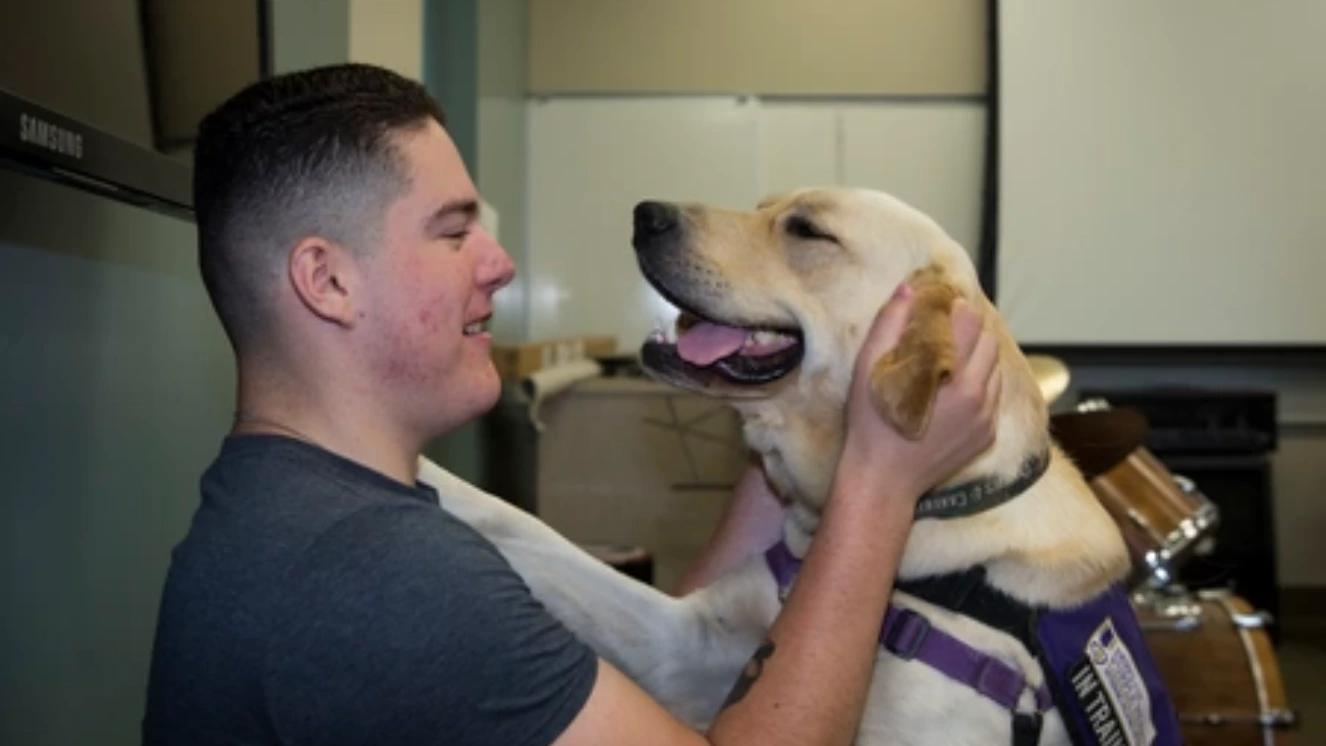LEAVING THE MILITARY: DOES MY FAMILY HATE ME NOW THAT I DON’T DEPLOY

Introduction
Now that you are a veteran and no longer deploying you may be struggling with the adjustment of spending so much time with your family. This is completely normal and your spouse and children are likely feeling the same challenges. Leaving the military is tough, but coming home to what feels like a stranger’s house can be worse. Veteran transition into life at home full time will be an adjustment. It may seem like your family hates you, but the truth is your spouse probably thinks that you feel the same way about them! You are all going through the transition. It is up to you to decide whether you will transition together or apart.
Leaving the Military: 11 Expert Tips to Learn to Live Together Again
Soldiers returning home brings feelings of relief, joy, and fear for military spouses. They have learned to live independently during deployments and while they are excited for their veterans to return home, the transition brings feelings of uncertainty. Will he have post-deployment blues, changes to established routines, will she be the same person? Here are eleven expert tips from the military spouse fellows of the Elizabeth Dole Foundation.
Tip #1 - Don’t Set Your Expectations Too High
Give yourself time to adjust to being home and remember that this will not happen overnight. Just as you are transitioning, your spouse is transitioning too. Making the adjustment together will shorten the time it takes and make the process smoother. Setting SMART goals with your spouse is a way to respect his or her feelings and establish boundaries as you get settled into your new normal.
Tip #2 - You May Not Be the Same Person That You Were Before You Started Deploying

Tip #3 - Find a Common Interest and Set Aside a Scheduled Date Night
Likely your interests have changed and you are disconnected from your spouse. Re-connecting will take time and is a decision that you’ll need to make and stick to. It may take experimenting with different activities or getting to know one another again. Make a list of 25-50 activities that you can do together and start crushing your list. Some nights will be total fails. Learn to laugh when things don’t work out as planned. At some point, you will discover what you enjoy most.
Tip #4 - Parenting Roles Can Be Difficult as You Adjust to Joint Parenting
During deployments, milspouses feel like single parents. Early after deployment adjustment, it is a good idea for couples to establish expectations for parenting and create agreements. Veteran transition is difficult for military children too, and when parents are united it creates a peaceful home environment. Take it a step further, and schedule a date night with your kids one at a time. The Family Board Meeting can transform your relationships with your children.
Tip #5 - Communication Is Key
This simple, but effective tip is a must and it is often the most neglected. The issue here is that many of us have forgotten how to talk to one another. Not only that, military spouses have discovered their own independence and sometimes get defensive when their veteran comes home and we communicate ineffectively, we get defensive, or we think that they are trying to change things that we feel are working well. Then throw in PTSD and a spouse walking on eggshells to keep things calm for the kids, and it is like living a nightmare. Here are a few tips for communication:
- Establish a code word for when tempers get out of line. This may sound silly, but it works if you stick to it.
- Here’s an example: When my husband’s PTSD flares (which I had to learn that it wasn’t about me, it was because he was triggered) I do not react, but calmly say, “Honey, I think it’s time for you to go fishing.” End of conversation. We part ways and pick up the conversation later if needed when we have calmed down.
- Ask learning questions rather than judge your spouse. Based on the book Change Your Questions, Change Your Life, by Marilee Adams, I’ve learned to question my spouse with learner questions rather than judge him with questions like “What’s your problem” or “Why are you being a jerk?” Now I question myself with things like “Is he in pain this morning” or “Did he take his medication” before I respond or react emotionally.
- Set a time aside each day for a 15-minute check-in. Just as you would at work, creating a check-in time with your spouse lets them know that you care and that you are invested in the success of your relationship and your family.
- Tell your spouse what you are doing. Nothing is worse than not knowing where my veteran is, especially when I am concerned for his well-being. There were times when I would not go to the store for fear of returning to find him having taken his life. Be respectful of your spouse’s feelings and simply take the time to communicate your plans.
- Tell your spouse that you care and appreciate them. Often taken for granted, this one thing can change the tone of your marriage.
Tip #6 - Don’t Bottle up Your Feelings
The last thing you likely want to do is talk to your spouse about your feelings. This doesn’t have to be a tell-all. Simply keep the lines of communication open. Even sharing simple things like “I’m having a bad day” will tell your spouse that you have something going on inside of you and that you are not upset with them.
Tip #7 - It Will Take Time To Re-Establish a Role in the Family

Tip #8 - Take Care of Yourself
In the military, you had to stay fit and healthy. You ate well, worked out, and maintained a mindset that you would take care of yourself. After service, you may have physical or emotional wounds that make it easy for you to make excuses to change this routine. You’ll find no excuses here! No matter your injuries, health & fitness is a must! You know the drill, put on your oxygen mask first. When you aren’t taking care of yourself, falling into depression, and being inactive, your pain gets worse. Check out our podcast with Bessel van der Kolk on his book The Body Keeps the Score: Brain, Mind, and Body in the Healing of Trauma.More like this:Mindfulness Meditation for Veterans: The Secret to Coping W/ Stress
Tip #9 - Create a Structure
You have had a routine for years. Told what to wear, how to act, lived by a set of rules. Now you have complete freedom. Too much freedom is a recipe for disaster. Meet with your spouse and discuss a routine that works for you and your family. If you will no longer be working, consider how you can divide your responsibilities and contribute to your family. Simple things like when to wake up and how to dress can become overwhelming when you feel like you no longer have a mission for the day. Establish a routine that includes a regular schedule, exercise, chores, family time, date night, check in with your military community, and volunteer service.
Tip #10 - Stay Off the Couch

Tip #11 - Connect With Other Veterans
You were wired for connection with the military community. To beat the post-deployment blues, stay connected with other veterans. Taking it a step further, you were called to serve. No matter your injuries, physical or emotional, you are not too sick to serve. Find a local veteran organization and get involved. The sooner after retirement, the better. Check out Charity Navigator to find an organization near you.
Conclusion
Leaving the military is tough on families. But you have a choice to make. You made a commitment to your country. Can you make the same commitment to your family, the ones that carried the battle on the homefront while you protected our great nation? It will take time, patience, and communication. Use the same skills that you were trained with and apply them to your family. You’ll find that life can be better than before you deployed! Here are some great blogs on health & fitness for veterans:



